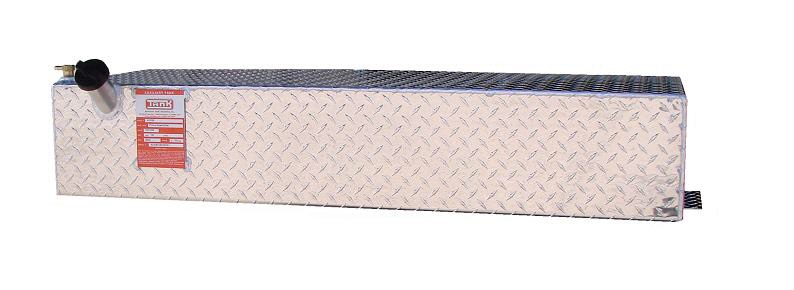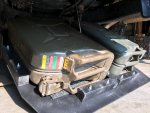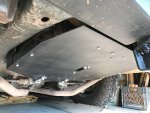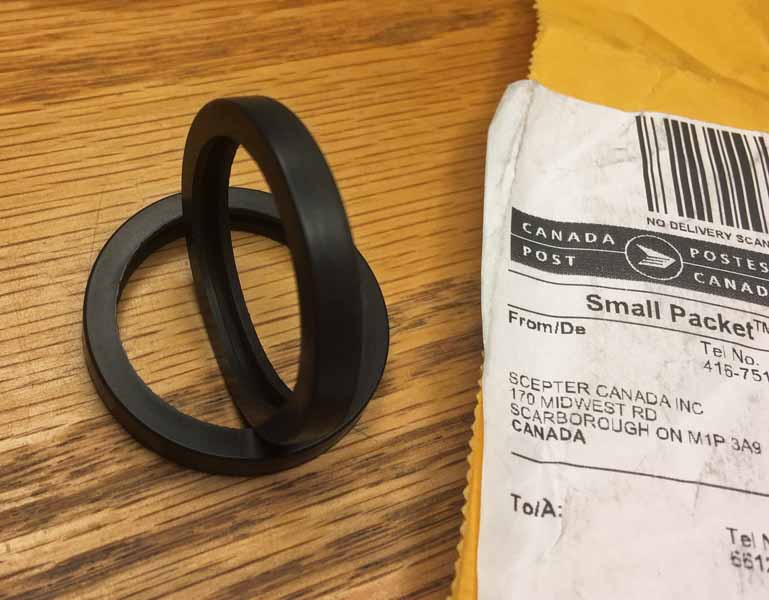Carrying spare gas when you are in areas where gas stations are few and far between is smart. All it takes is one "closed" sign to put a big crimp in your plans!
I learned that the hard way in 2012.

Long story time: Wife and I were on our first long trip with our home built teardrop trailer "Bubbles." We were on our way to a Teardrop gathering in Grants Pass, OR. Along the way we wanted to pass through central Oregon and Crater Lake (neither one of us had been to either place.) So we drove US 26 between Vale and Redmond (which is a GORGEOUS road, BTW.) My vehicle was a 1999 4runner with the tiny 18.5 gallon tank, and even though the trailer "only" weighed 1100lbs, it was doing a number on my fuel economy (which wasn't all that great anyway with the 3.4 and the slushbox.) We passed through the medium-sized town of John Day and I had maybe a quarter of a tank left, so I decided not to refuel, since I knew we'd be passing through several other little towns before we got to Prineville. About 30 miles up the road is a town called Dayville, and I figured I'd fuel up there.
For some reason (not sure why), I decided not to fuel up in Dayville. It may have been that I thought gas was too expensive there. So I look at the map - AAA says there is a town just up the road, Mitchell, about another 40 miles up the road and according to the map, there's a gas station there. 40 miles is cutting it close but I figured if AAA said there was a station there, there must be one. It was getting late in the afternoon at this point, about 4:30 or so.
So I didn't say anything to the wife, just kept on cruising. We get to Mitchell and I'm getting nervous because the fuel gauge is at about 1/8 tank and I know there are no towns between us and Prineville. I turn off of US 26 to get the to gas station. It was 5:15.
Sign on the door of the gas station: CLOSED. Turns out their hours are 7 - 5. Now in 48 states, this would be a non-issue. Pull up to the pump, slide the credit card and pump gas, right? Oh, but this is OREGON, one of the two states in the union (New Jersey is the other one) where it is ILLEGAL to pump your own gas. So no attendant = no gas.
This put me in a quandary: If I turned back to Dayville (37 miles back), not only would it mean a minimum of an hour and a half added to an already long day, but given that the Dayville gas station was ALSO a "mom and pop" type store, it seemed likely to me that it was probably closed, too. And the next closest gas at a station I KNEW would be open in that direction would have been at Mount Vernon, 60 miles behind me.
But Prineville was "only" 47 miles ahead of me. So even though the Scangauge was indicating I had about 30 miles to empty, I decided to head West towards Prineville, hoping I'd make it. I watched the "distance to empty" tick all the way down to zero, the "low fuel" light came on and then started flashing angrily as I descended down the mountain pass (one of these days I'd like to go back there and actually SEE that pass because I think I was fixated on the road and the gas gauge!)
Then, just 5.7 miles from Prineville, as we were passing by the beautiful Ochoco Reserrvoir, I felt the truck begin to cough and buck and I figured I'd pushed my luck as far as I needed to and I certainly did not need to have a "dead" truck and trailer in the middle of a narrow highway. So I coasted onto a wide section of the shoulder, turned off the engine and called Roadside Assistance. It was a very nice late spring day, so we got out the folding chairs, made sandwiches for dinner and waited for a service truck to come in from Prineville, which took about an hour.
I took some good natured ribbing from the wife, but it really wasn't a bad time. Even now, though, if we're on a road trip my wife will sometimes glance at the gas gauge and say "do you need to fuel up? Remember that time in Oregon?"
My take from all this is that if you are traveling in an unknown area, especially a remote, sparsely populated area, ALWAYS fuel up LONG before you have to. And (getting back to the OP's first post), carrying extra fuel when traveling in such areas is rarely a bad idea.
For that matter I've always believed in the old Aviator/boater saying that "the only time you ever have 'too much fuel' is when you're on fire."




